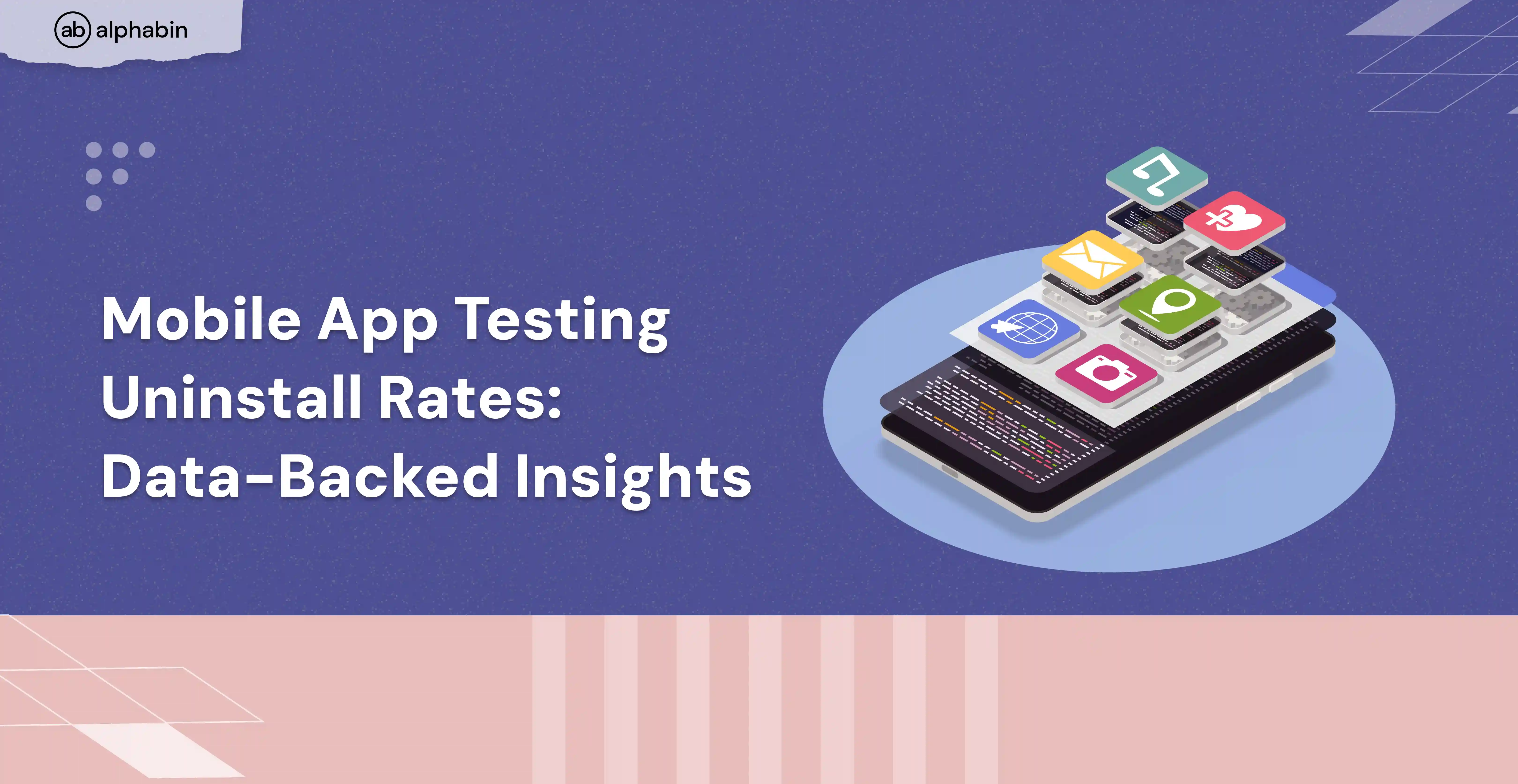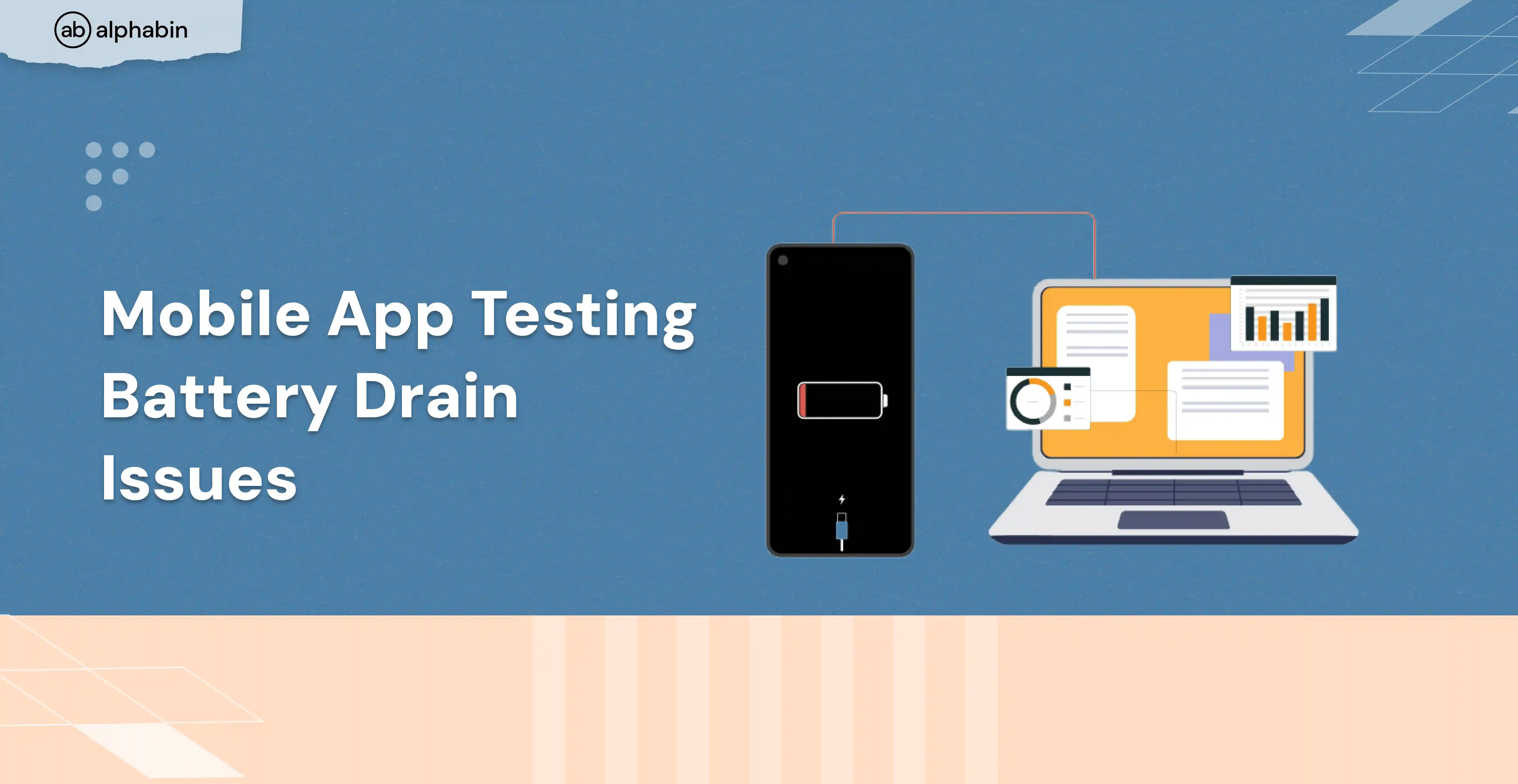Artificial intelligence (AI) is changing the software development landscape, particularly in the quality assurance (QA) domain. According to a market study, the AI market is projected to reach US$826.7 billion by 2030, driven by a CAGR of 28.46% and widely adopted across industries globally.
Speed in today’s market cannot be overemphasized because the market demands faster and much better quality software. Typically, the approaches to QA are complex and fail to suffice for the goals and timelines of today’s software development life cycle (SDLC).
This is where AI testing tools come into play. Their major benefit is that they improve the testing process, facilitating quicker product launches with greater precision and less reliance on humans. Testing cycles are also best handled by AI-powered solutions, as the solution can automate many tasks as well as offer continuous testing on Android and iOS devices.
As organizations require dependable and quicker QA solutions, AI-based testing tools have emerged as driving forces for embracing quick and efficient testing.
{{cta-image}}
What is an AI Testing Tool?
An AI testing tool includes machine learning (ML), natural processing language (NLP), and predictive analysis that helps in improving testing methodologies. This tool simulates a human tester, allowing for faster testing, smart identification, and automation that continues to learn how to avoid false positives over time.
Why Use AI Testing Tool?
Automation testing tools for AI have greatly enhanced testing services because of efficiency, accuracy, and flexibility as opposed to conventional testing methods. Here are the key reasons why organizations should adopt AI-powered testing tools:

- Speed and Accuracy: AI enhances the testing process by executing test cases much faster with less probability of mistakes, so it saves time.
- Reduced Human Intervention: AI also eliminates much of the manual work, such as regression testing and generating new test scripts that take up staff’s valuable time and effort.
- Scalability: It is possible to generalize large and complex projects without the levels of performance and coverage being reduced.
- Predictive Analysis: They can also forecast future failures from past data, and systems can assist a team in altering something before it fails.
- Enhanced Decision-Making: AI-based tools give actionable takeaways from test data, enabling better decision-making in the software development life cycle.
10 Best AI Testing Tools
As it is in any sport, the right equipment is crucial for the expert to record enhanced results; the same applies to AI testing tools. Well, now let’s proceed here and see the ten splendid AI testing tools that enhance the test experience!
TestGenX

TestGenX is a new AI-based testing tool developed by Alphabin that aims to transform the process of testing software for teams. However, blending innovation with simplicity, TestGenX unleashes the capability of quality assurance teams to facilitate test generation, implementation, & management effortlessly.
One of the many strengths of TestGenX is that it easily records user actions and automatically creates precise automation scripts in Node.js code without any human intervention. This allows script creation in less than half the time and effort compared to the alternatives.
In addition, TestGenX has the provision for parallel running of test scripts (for large projects/clients), thereby reducing testing cycles while enhancing performance. Beyond automation, TestGenX brings unmatched value through:
- Simplified Workflow: This makes it possible for testers of different levels of skills to employ it, meaning that coding skills are well supplemented.
- Accelerated Execution: TestGenX makes it easier to deliver cycles faster with guaranteed accuracy since it eliminates repetitive tasks while parallelizing them.
- Improved Test Coverage: TestGenX helps 4x to 5x faster automation code generation and optimizes interactions with browsers while AI-based algorithms choose stable IDs for your scripts, making them more reliable than your human-generated ones.
- Seamless Integration: This is particularly helpful as a part of CI/CD workflows and prepares perfectly with cooperation with popular tools such as Jira, GitHub, or even Slack.
Automating tests is not enough. TestGenX makes testing smarter, faster, and more reliable. Regardless of your scale, from startup to enterprise, TestGenX brings you the ability to deliver high-quality software with minimal effort but lots of results.
TestSigma

TestSigma is one of the AI-based test automation tools available in the cloud for web, mobile & API testing.
Key Features
- Reduction of flaky tests by incorporating artificial intelligence in test maintenance.
- Using NLS (Natural Language Scripting) for scriptwriting for testing.
- Supports multiple operations on the same system.
- Integration with tools such as Jira, Slack, and Trello.
LambdaTest

LambdaTest’s KaneAI provides continuous automation by harnessing the power of AI to write, execute, manage, and debug tests to improve test effectiveness.
Key Features
- Natural language instructions for test creation make the creation of test automation available for all skill levels.
- The test creation process is simplified via an intelligent test planner that autocodes test steps concerning high-level objectives.
- Code export of tests in multiple languages and popular programming languages and frameworks for flexible automation advantages.
- With two-way test editing, it’s easy to make changes to code and code back to natural language edits.
Katalon

Katalon is an AI-powered testing tool for web, API, mobile, and desktop apps. The features include automatic healing tests, smart object detection, and script generation to simplify automating, reduce maintenance, and quickly identify problems.
Key Features
- The AI test data generation generates realistic test data according to application requirements.
- The test scripts will be automatically updated when the application changes using AI test maintenance.
- With Smart Wait, wait times automatically go up and down to improve test reliability.
- OpenAPI or swagger specs are used to generate API tests with the help of AI API test generation.
Eggplant

Eggplant is a tool for end-to-end testing of web, mobile, and desktop applications. It leverages the impact of AI and ML for creating, executing, and maintaining tests—aimed at delivering a great user experience and high-quality software.
Key Features
- Image-based testing uses image recognition to make tests act like real user interactions.
- Machine learning is used to automatically generate and update tests with AI-driven test generation.
- Consistent performance across various platforms and devices is enabled by cross-platform support.
- It works with CI/CD tools Jenkins and GitLab as week-long continuous testing.
TestComplete

AI-powered test automation tool TestComplete has checkpoints for verifying images, tables, and settings. It allows testers to easily design, maintain, and deliver functional tests for desktop and web applications as well as mobile applications.
Key Features
- AI-based OCR identifies elements by the content supplied in the text.
- Test optimization is performed via AI to spend on prioritizing the critical tests to save on test execution efficiency.
- As the application is changing, self-healing tests automatically correct any errors in the test scripts.
- Visual recognition tests actions such as clicking or hovering over charts, plots, and maps using AI.
Functionize

Functionize is an AI testing tool that is suited for testing such complex applications. Deep learning AI automatically runs tests, builds, and runs tests in CI/CD pipelines and creates functional and end-to-end test coverage.
Key Features
- Using AI to optimize resources to create scalable test clouds offering faster test execution and better coverage.
- Instead, test scripts are updated automatically with AI-powered test maintenance if changes are detected.
- It generates smart data to improve test accuracy and reliability while generating realistic test data.
- In AI visual testing, the computer vision compares screenshots or elements.
Applitools

Applitools is an AI visual testing company that enables machine learning-based UI compatibility among devices. This validation type is useful in areas such as e-commerce and financial sectors since it pumps up usability by providing reliable vision validation.
Key Features
- Proprietary algorithms and a decade of experience, enterprise-proven AI.
- Generate scripts using codeless tools, preferred frameworks, or AI.
- A simple interface that can test apps, components, or PDFs across screens and devices.
- Automated visual and functional regression testing for UI components.
Accelq

ACCELQ is a cloud-based AI-powered test automation platform that provides codeless solutions for enterprise applications. It enables automation for web, mobile, API, and desktop and facilitates reliable, long-term test execution.
Key Features
- By crafting the adaptive relevance engine, the speed of test creation increases with suggestions of the next steps to be taken.
- Root cause analysis is done quickly with the power of AI; errors are identified and fixes are suggested.
- AI-powered smart locators are capable of adjusting to changes in the application’s UI.
Mabl

Mabl is a web application test automation tool built for agile teams. It learns using machine learning but is adjusted to changes, and this way has broad test coverage and is easy to use for all team members.
Key Features
- Runs browser UI tests for user journeys (including SVGs, 2FAs, emails, and PDFs) with low-code JavaScript.
- Installs the mobile UI tests for the hybrid and native apps to Appium scripts with low code.
- Mabl may integrate API tests to web and mobile tests through its code editor or straight from Postman collections.
- Allows for streamlining web accessibility testing as it reuses browser UI tests to identify and fix issues.
- It performs efficient load testing for browser and API tests and SLAs applicable to Core Web Vitals and User Flow.
Criteria For Choosing the Best AI Testing Tool
There are some important factors to keep in mind when choosing the best AI testing tool for your organization so that it can be effective, help you be more productive, and provide reference value. Below are detailed criteria to guide your decision:
1. Ease of Integration
It should just fit seamlessly with your current CI/CD workflow and work with popular setups like Jenkins or GitHub Actions. Robust custom APIs will help you be flexible and cause minimal disruption to your existing processes.
2. AI-Powered Features
Also, look for self-healing/automated testing to adapt to the changes in the app, machine learning for smart test prioritization, and predictive analytics for helping proactive issue detection. They help make the system more efficient and more pleasant to maintain.
3. Platform Supported
Make certain that the tool allows testing on the web, mobile, and APIs; further, it should have the ability to simulate the environment by different browsers, devices, and networks. Another requirement is the ability to operate running on either a cloud or on-premise solution.
4. Cost and Scalability
Select a tool that meets your budget, meaning all costs, such as the license fee and expenses for maintenance. It should be able to accommodate projects of any size and should be able to suit flexible licensing models.
Why TestGenX is the Right AI Testing Tool for Your Project?
Alphabin's TestGenX is a revolution in the way testing cycles are managed within the software development life cycle. It enables QA teams to handle the testing process smoothly, automate boring tasks, and work together without any setbacks for both Android and iOS devices.
{{cta-image-second}}
A great effect of selecting an ideal testing platform for delivering quality software within the shortest time possible. Here’s why TestGenX stands out from the competition:
- Innovation Meets Practicality: TestGenX integrates the latest AI tools with simplicity so testing experts can get on the platform with no help from a specialist IT person to use it.
- Time Efficiency: Through the use of automated script creation and automation of scripts running, TestGenX minimizes time and maximizes results, making the software more qualitative.
- Scalability for Large Projects: TestGenX is able to meet the needs of small-scale and large projects by developing both online and batch-testing tools.
TestGenX’s Impact on Your QA Process
Teams that adopt TestGenX experience:
- Significant Time Savings: Tests can also be created automatically, and testing can be carried out in parallel, which results in a saving of testing time.
- Improved Accuracy: In cases of automated testing, errors are minimized since AI-driven analysis supports high-quality software.
- Simplified Onboarding: That means that new tests will not take very long to become oriented within the TestGenX interface, as the software is relatively uncomplicated.
- Enhanced Collaboration: This will enable us to work better with CI/CD tools and thus, critically, better facilitate the communication between developers and QA people.
Conclusion
By integrating AI in software testing and AI testing tools into the QA, we are rewriting the face of software quality assurance and enabling businesses to satisfy the needs of fast development cycles and produce flawless applications with confidence.
TestGenX by Alphabin stands out among the large options in terms of its capability for test generation, execution speed, and extreme accuracy. TestGenX simplifies QA processes and provides high-quality software efficiently, whether for small-scale or enterprise-level projects.
Alphabin also offers a comprehensive suite of software testing services, such as regression testing, end-to-end testing, and mobile app testing, that are designed to ensure the quality, performance, and security of your applications.



.svg)











